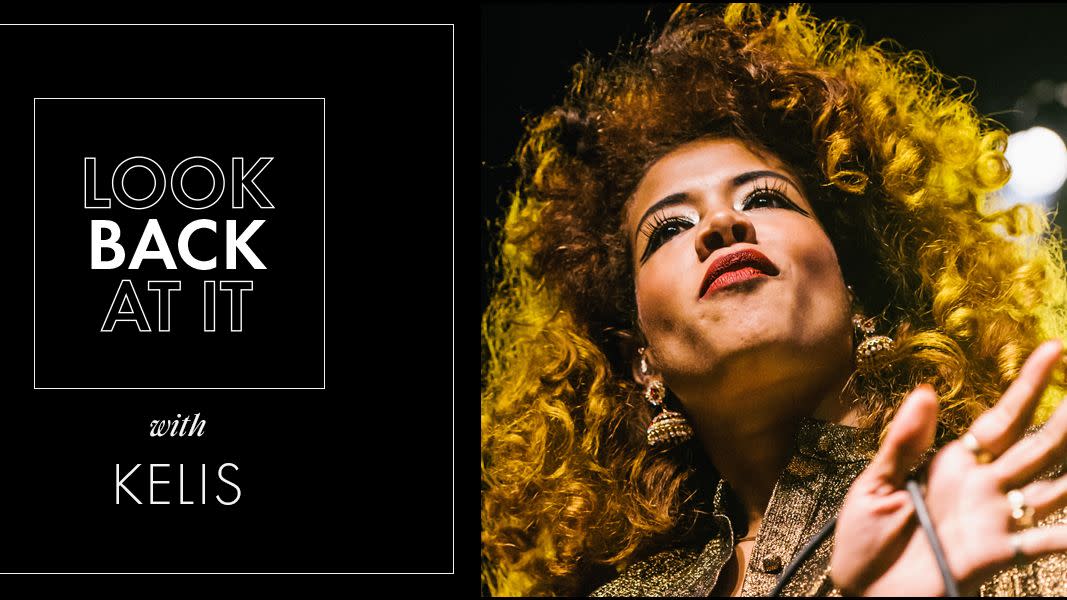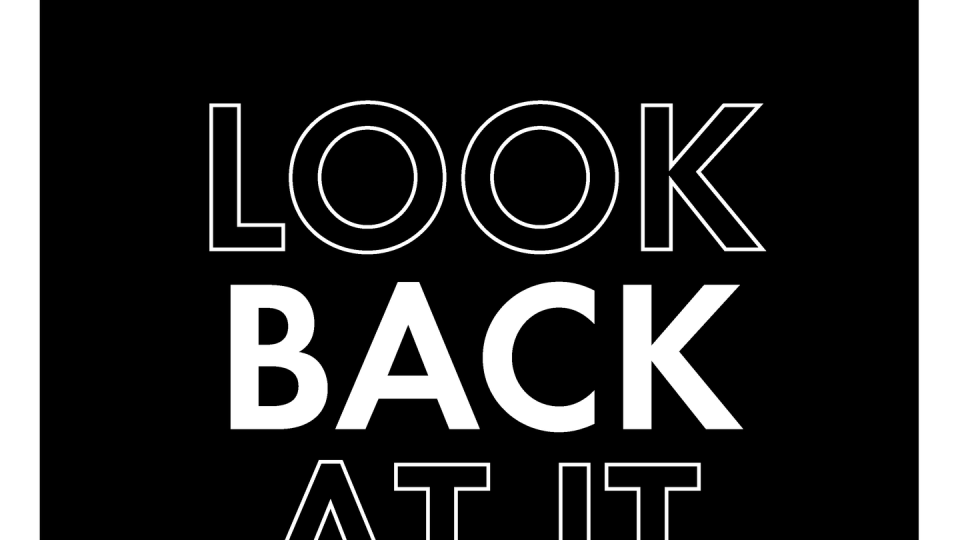Kelis Looks Back at Her Most Iconic Music Videos


Welcome to Look Back At It, a recurring column where some of the most iconic Black musicians and actresses reminisce and reflect on the videos and roles that made them stars. For this month’s installment, Kelis breaks down her career—from the music videos for “Milkshake” and “Bossy” to her most recent visual collaboration with Lactaid.
In 1999, Kelis released her debut album Kaleidoscope. And while that project and its 2001 successor Wanderland spawned hits like “Caught Out There,” “Good Stuff,” and “Shooting Stars,” it was her third album Tasty that catapulted her to a new level.
The lead single—released on August 25, 2003—was “Milkshake,” a Neptunes-produced track that peaked at No. 3 on the Billboard Hot 100, her only song to this day to crack the top 10. While “Milkshake” is now viewed as a modern classic, that wasn’t the case at the time. “Everyone was worried about the song,” says Kelis over Zoom. “And to be honest, looking back on it, I didn’t think it was explicit then. I don’t think it’s explicit now. But at the time, I guess it was. And now we’re 20 years in and it’s a song that’s licensed all the time. It’s in everything from Family Guy to Mean Girls. Now it’s this pop sensation. But at the time, it was a record that took two years to break. Radio didn’t wanna play it. No one knew where to put it. People just weren’t prepared. They weren’t ready.” The following year, the song earned a Grammy nomination for Best Urban/Alternative Performance.
Since then, she’s gone on to release the albums Kelis Was Here (also Grammy-nominated for Best Contemporary R&B Album), Flesh Tone, and Food. And with each album came iconic music videos. Though each Kelis era has a different vibe, much of her aesthetic remains the same. In her videos, you’re likely to find bold outfits, colorful hair, and a trend that was misunderstood at the time but then picked up by the masses years later.
“If you’re really trying to innovate, you can’t be mad if people don’t see your vision,” she says. “You can’t do this without having some kind of already-resigned understanding about who you are. So, for me, I never did any of this for validation. It was never about people agreeing. I think that if you understand what your purpose is, then [being misunderstood] actually isn’t lonely, but spacious. There was no one in my way. There was never anyone to bump into. I could stretch out because I was the only one doing certain things. This is a 20-some-odd-year career of firsts. And when I look back on all of these videos, I feel confident because I really did that.”
Below, Kelis takes us through some of her most iconic music videos.
“Caught Out There” (1999)
“This was before I knew anything. I didn’t know what I was doing or what was gonna happen. It was a different era, too. I was 18 when we shot this and there was no frame of reference. I still have all the clothes I wore in this video. Like, the jeans that I was wearing when walking down the street with all the women in the picket signs, that was something I bought from Pat Field back in the day before she went on to do Sex in the City. And my hair was already like that. I literally wore the same scarf that I would tie my hair up with. It was just all my stuff. I had no concept of what it was gonna become or that I’d be talking about it 25 years later.”
“Good Stuff” (1999)
“At the time, there were no other Black girls with green, curly afros. But, here we are. [Laughs] And the jacket that I’m wearing in the video is one that I made in high school. Those were my glasses and I dyed my own hair and I bought that jewelry on St. Mark’s Place. And it was cool because David LaChapelle hadn’t been doing videos at the time. I think it was his first or second video. So it was dope because we were both brand new. There were no rules and we could do whatever we wanted.”
“Milkshake” (2003)
“The official video for ‘Milkshake’ is actually the second one we shot. L.A. Reid and [the rest of] the label were worried about the original one. They felt it was just too much. So we ended up reshooting the entire thing. Normally, I wouldn’t have agreed to redo it, but it was more about the record for me. I knew that it was gonna be a fight to get people to play it, which it was. And so, shooting another video, I was like, ‘All right, whatever. I just want them to play the record.’”
“Millionaire” (2004)
“‘Millionaire’ was hard for me because it was a really weird time. Arista [Records] had folded and L.A. Reid had just left. They kind of just shipped everybody off. So then I ended up at Jive Records and it was just a mess. I had no control. It wasn’t a great time for me in my career. I didn’t have any support so I had to do everything on my own. Like, we even had to pay for this [video]. Andre [3000] and I had all of these grandiose, amazing ideas for this record, but it was the worst possible timing. That’s why I wasn’t in the video. I just kind of gave up. It just became exhausting and stressful. It was actually my manager’s daughter in the video. We did it as simply as possible just to get it done.”
“Bossy” (2006)
“‘Bossy’ was another really iconic moment. It was another hair moment. For Black women, I feel like it’s our best accessory. For this video, I actually cut my own on set. I was like, ‘Let’s do something different.’ And then for the next five years, everybody had asymmetrical hair.”
“Brave” (2010)
“This whole era was such a coming-of-age for me. I was really branching out on my own. I think becoming a mother was the one thing that really validated me in ways that I didn’t even realize. It made me feel like I can do anything. So my music went right along with that. By this point, I was 10 years in the game and had solidified myself. I didn’t feel like I had to fight anymore, even though it’s always kind of an uphill [battle]. But I was really comfortable in my own skin and I wanted to do something raw that aligned with the way I felt.”
“Acapella” (2010)
“I think this is my favorite video. It was one of those moments where everything aligned and worked out perfectly. I had just had my oldest son and he was like three or four months when we shot it. He’s on my back at the very end. That headpiece I wore was actually an old vintage purse. And then the neckpiece and the corset are all beads. It was just a really dope fashion moment. Like, I had gray hair. I was the first one to do that. And I did a super long ponytail, which I got so much flack for, but now you see all these really long ponytails. It was just stuff we hadn’t seen before.”
“Jerk Ribs” (2014)
“This was for my Food record and we shot it in Tijuana. I wanted it to be glamorous and retro, but also new. And the outfit that I’m wearing in this thumbnail is a vintage Bob Mackie. And again, there were a lot of beads. I loved it.”
“Midnight Snacks” (2021)
“For this video, I wanted it to feel royal, Black, and regal. I had to have pink locs, which is such a me thing. Everyone always tells me that pink is my natural color. So it was just as lush and over-the-top as it could possibly be. And I think that food and music are so carnal and visceral. In my own [discography], I have Tasty and songs like “Milkshake,” “Suga Honey Iced Tea,” and “Midnight Snacks.” It was never the plan, but I think they’re two of the most sensual and hot things you can put together.”
“It’s Dairy” (2023)
“This Lactaid partnership was an easy pairing. As a farmer and as a mother, it’s important that people understand the importance of real ingredients and eating with purpose. For this video, it was so fun to take ‘Milkshake,’ something that was such an iconic moment in my career, and play with it. And we shot on a farm that looks very similar to mine. Since everything I do is around food, Lactaid was something that made sense for who I am and what I preach. Especially within our culture, it’s important that we take our health back. And so the best way to do that on the easiest level is to just start eating real food. We were able to do a really fun take on a classic with ‘It’s Dairy.’ It’s been 20 years and ‘Milkshake’ continues to live on.”
You Might Also Like


